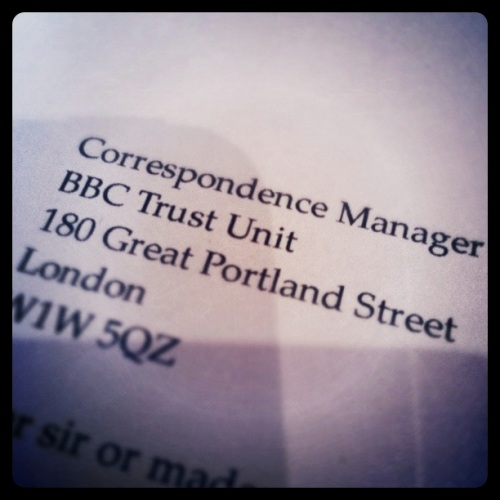Previously on 'Another Damn Blog': I wrote to the BBC to complain about a minor matter??of them getting telephone numbers deliberately wrong on-screen.
std codes
0208 if you’re outside reality
Some will say this is petty, but it’s worth pointing out.
Just before Doctor Who, the BBC ran a trailer for the return of the John Barrowman cheap variety filler programme “Tonight’s The Night”. They were begging for idiots in the audience to apply to humiliate themselves on television. In order to take part in this ritual humiliation, they need to call the production company.
Just call 0208 576 9785, they said. Except this number doesn’t exist. The Subscriber Trunk Dialling number for London is 020. It used to be 01, as we probably all remember from childhood when the BBC would often tell viewers “Call for more information on 01, if you’re outside London, 811 8181”, helpfully ignoring that 85% of the country are outside London. Then they split London into inner 0171 and outer 0181. Then they combined both again into 020. When they created 020, they added 7 or 8 to the front of the local number to make more numbers. Since then, they’ve introduced 3 at the start of the number for some subscribers, with 5 to follow soon.
Similar changes of numbers have happened elsewhere too. Leeds was 0532 (0LE2 on the old dials, see?) but they changed it to 0113 and put an extra 2 on the front of the subscriber number. So a Leeds number is 0113 2XX XXXX. It isn’t 01132 XXXXXX. Locally, you have to dial the 2, even if you don’t have to dial the 0113.
So when the BBC said to call 0208 576 9785, they meant 020 8576 9785. Why is this important? Because these little things are important. If the BBC can’t even research correct telephone numbers for a trailer, why should we expect them to research correct background information for a news report?
If the BBC can get its own telephone number wrong, can they be trusted to make a documentary without cutting such basic corners? If there’s a phone vote, can they be trusted to count the calls correctly? If they can’t even get a phone number right, can anything they say be trusted? From such acorns do mighty oaks grow.
